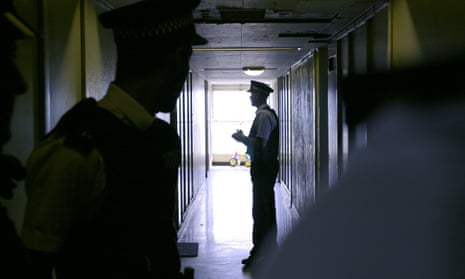Police chiefs have admitted they have been too slow to boost diversity in the ranks and still have a long way to go, almost 21 years since a landmark report into race and policing triggered promises of radical change.
The admission came as a study found that black police officer numbers barely increased since the middle of the last decade, rising by 86 officers across the 44 forces of England and Wales between 2007 and 2018.
The head of the National Black Police Association said communities were shunning a career in policing, fearing racism in the ranks and community stigma about joining an organisation perceived as oppressive.
The study by the Police Foundation thinktank, released later this week, found the increase in ethnic minority officers was mainly due to Asian and mixed-race men.
It said: “The main driver of increasing police officer ethnic diversity since 2007 has been the recruitment of Asian and mixed ethnicity officers, especially men, while black representation has barely increased.”
Police chiefs managed an average annual increase in black officers of around eight a year across England and Wales.
In 2007 there were 1,412 black officers, or 1% of the total of 144,000. In the next 11 years, the total fell below that at one point and also rose to 1,502 but by 2018, when the study ends, black officers reached 1,498, some 1.2% of a total of 125,000. That compares to the black population of England and Wales, which ranged from 3.3% to 3.5% between 2007 and 2018.
Next month is the 21st anniversary of the report on race and justice that shook policing to its core. The 1999 Macpherson report into the police failings that allowed the racist killers of black student Stephen Lawrence to go free led to a range of promises. Key among them was police chiefs vowing to make forces look like the communities they served by having the same proportion of ethnic minorities as the populations they policed. They were given a decade to hit the target and every single force missed it.
Policing in England and Wales suffers a race deficit. Just 7% of officers are from ethnic minorities compared with 14% of the population. Britain’s biggest force, the Metropolitan police, estimated that at the current rate of progress it would need about a century for its percentage of ethnic minorities to be the same as London’s population.
Q&AHow many police officers are there in the UK?
Show
In March 2019 there were 126,000 police officers in England and Wales. This includes 4,000 officers from the British Transport Police. Policing is devolved in Scotland, and the country has had the equivalent of between 16,500 and 17,000 full- time officers for the best part of a decade. Northern Ireland has around 6,500 officers.
Police officer numbers in England and Wales have declined by 20,000 since 2010, when the Conservative and Liberal Democrat coalition came to power. The number of police officers in England and Wales is at its lowest recorded level since the Margaret Thatcher administration in the early 1980s. Boris Johnson has pledged to recruit 20,000 new police officers.
The National Police Chiefs Council (NPCC) lead for workforce diversity, chief constable Ian Hopkins, said: “The proportion of black, Asian and ethnic minority officers and staff is at its highest ever level but we recognise we have been far too slow to increase diversity and we know there is still a long way to go so that policing is truly reflective of the communities we serve.
“Everyone in policing knows how important it is that communities can relate to and feel represented by us.”
Hopkins, who is also the chief of the Greater Manchester police, said of the struggle to recruit black officers: “The slower rate of progress in recruiting black police officers is likely to reflect the fact that confidence in police has historically been lower among black people than white or Asian – although latest statistics show an improving picture. We’ve been more successful in recruiting black PCSOs and other police staff.”
Sgt Tola Munro, president of the National Black Police Association, said: “There is a distrust of policing within black communities, particularly among Caribbean communities. Why would you look at policing when you run the risk of discrimination from some of your colleagues. There is a lack of confidence particularly in urban areas.”
Police chiefs hope the government’s promise of thousands of new officers will help. The report authored by Gavin Hales, an associate fellow of the Police Foundation, said: “The planned 20,000 uplift in police officer numbers over the next three years offers policing in England and Wales a once-in-a-generation opportunity to dramatically improve the diversity of its police officer workforce.”
Rick Muir, director of the Police Foundation, said some forces are doing better than others and those performing less well should learn from them: “The current recruitment drive is a golden opportunity and the service should be looking at those forces that have done well at recruiting a more diverse workforce and acting upon the lessons learned.”
